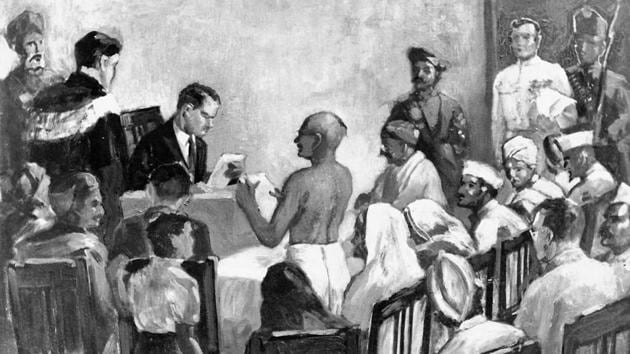On Gandhi’s 150th, it’s time to review the sedition law | Analysis
The colonial law meant to suppress dissent persists. Used as a political tool, it has deprived people of liberty. Scrap it
Earlier this month, during the course of a lecture, Supreme Court (SC) judge Justice Deepak Gupta, remarked that the time had come to reconsider the law of sedition. Highlighting a number of recent examples, he observed that the law of sedition “is more often abused and misused”, and that “freedom of expression being a constitutional right must get primacy over the laws of sedition”.

Justice Gupta’s observations are a significant intervention in the ongoing debate about the utility of the sedition law in the India of 2019. As Justice Gupta correctly noted in his lecture, sedition is — of course — of colonial origin. The British regime enacted it in order to suppress political and cultural dissent, and many of the most famous figures of the freedom struggle — including Gandhi — were sent to jail on charges of sedition. The very text of the sedition law reflects its colonial provenance. In prohibiting “disaffection”, “contempt” or “hatred” against the government, it effectively requires citizens to love their rulers — or, at least, to not make their dislike publicly known. It was for this reason that there was a fierce debate about sedition in the Constituent Assembly. Attempts to include it as a specific restriction upon the freedom of speech were defeated, and Jawaharlal Nehru himself went on to promise that the government would soon get rid of it.
However, the government didn’t, and in 1962, the SC upheld the constitutional validity of sedition. The court held that penalising sedition was a reasonable restriction upon the freedom of speech — however, only if the words of the provision themselves were given a narrow meaning. In other words, it wasn’t enough to just spread “disaffection” against the government, but to do so in a manner that incited violence or public disorder. In the five-and-a-half decades since that judgment, the SC has refined the test further, noting that the link between speech and public disorder must be like that of a “spark in a powder keg”, and that it must constitute incitement to “imminent” lawless action.
The problem, however, is that there remains a massive gap between the words of the sedition law — “disaffection”, “contempt”, and “hatred” — and the interpretation placed upon it by the Supreme Court — incitement to imminent lawless action. An ordinary person who simply looks at the text of the law is unlikely to divine that what it actually requires is incitement to public disorder. It is this gap that has allowed the law of sedition to be used as a political tool. As Justice Gupta also pointed out in his lecture, sedition is a cognisable offence, which means that the police can arrest an accused without the need for a judicial warrant. This allows for the deprivation of personal liberty with great ease; so while there are very few convictions for sedition, the provision’s broad wording facilitates — to use an old cliché — “the process being the punishment”.
Keeping this in mind, and the fact that we already have laws to penalise and punish people who call for and incite violence, Justice Gupta’s call to relook at, and review, the sedition law must be heeded. The real bite of the sedition law is in its broad wording. Terms like “disaffection” and “contempt” can be stretched to mean just about anything, enabling, for instance, prosecuting 7,000 farmers for protesting against a nuclear power plant (as happened a few years ago). But it is this precise broad wording — with its colonial rationale of insulating the government from the citizen — that is contrary to the Constitution, and the precise reason why the SC has given it a narrow (and almost unrecognisable) meaning. As events have shown, however, the gap between the law and its judicial interpretation has become so wide that there can be no interpretive bridge that will adequately protect liberty; this being the case, the Supreme Court will, hopefully, reconsider its 1962 decision, and strike down the law of sedition as being unconstitutional. This will be the greatest tribute to Gandhi.



